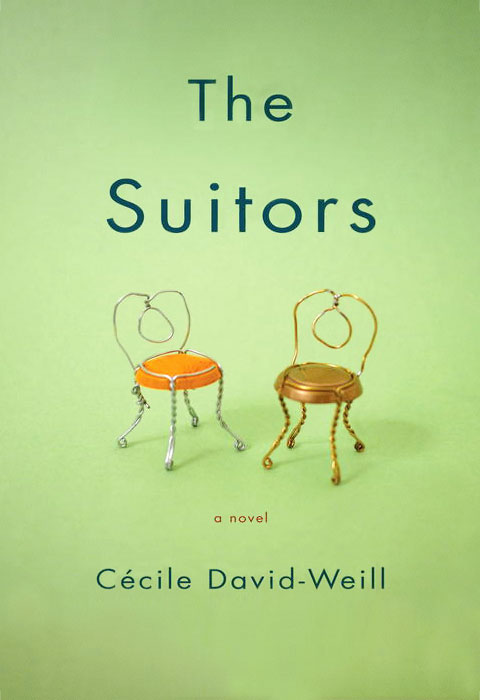
Cécile David-Weill’s witty new comedy of manners dives into the rarefied world of the French beau monde. In it, sisters Laure and Marie attempt to save the family’s summer retreat on the Côte d’Azur by luring a billionaire suitor. We chatted with the French-American author about that privileged world. Plus, she shared her tips on etiquette, entertaining and navigating the French and Stateside cultural divide.
- What inspired the book?
My goal was to talk about family houses. There’s a tradition of talking about them — movies like Gosford Park and La Règle du Jeu or that TV series, Upstairs Downstairs. A lot of people have family houses, which seemed to me a very interesting microcosm where you can evoke childhood and culture at the same time.
- Do you have a family house?
Yes, and it’s in the south of France, not that far from the one I’m describing in the book. These houses go back generations and are part of a time that’s different than the one you’re living in. And that dictates how you live there. Ours was built in the Thirties, which implied a way of living in the Thirties. The house never changes, but everything else does — the owners, the decoration, the staff, the people. That house goes on like an old lady who doesn’t notice that everything around her has changed; she’s totally out of it. That’s what I wanted to talk about.
- Does the narrator, Laure, take after you?
You always put something of yourself in characters, even the worst characters, so of course there is some of me in Laure. But it’s not at all biographical; the only true part is the feeling of the house. The nice thing about writing a novel is that you can play the “What If” thing. What if I was young? What if I was beautiful? What if I was a stupid guy?
- Much of the book deals with nostalgia. What are you nostalgic for?
Time — that there’s no time anymore for things that are of no use. Like conversation. Or just having a coffee. Or daydreaming. Nowadays, people even make their spare time useful, like to go to the gym. The unexpected comes from something not scheduled.
- Who are your literary influences?
Marcel Proust, of course. Guy de Maupassant for short stories. Gustave Flaubert for style. And, for The Suitors, Nancy Mitford.
- What’s your version of the Proust madeleine?
There’s a smell that used to be in that family house, in the elevator. It’s like mold and pipes — it’s not a very nice smell — but it’s a smell that reminds me of childhood and of that house. I’ll find it sometimes in places that are really weird and not very nice, like cellars or corridors, but I could stay there for hours.
- There are a lot of dinner scenes in the book, complete with seating charts.
Do you have any tips on seating to share?
The best is to forget about the way it’s supposed to be done, except if you’re having dinner with Obama or someone who would be offended not to be on your right side. Otherwise, just put one talkative person next to one who isn’t, and don’t have all the fun people at the same part of the table. It’s like cooking — a bit of salt here, a little pepper there….
- And to keep the conversation lively?
In my book, when the dinner conversation gets so bad that nobody’s saying anything, one of my characters says, “I’ve never been to Venice.” Then everybody goes, “What?! You’ve never been to Venice?!” because it’s so unlikely. So anything unlikely that can create a kind of reaction is good. And ask questions; people like to talk about themselves. But ask trivial questions. Don’t ask about what work they do. It’s better to talk about something that’s not related to your life because these dinners are supposed to be a parenthesis of life.
- Since etiquette and customs are another theme in the book…
any advice for Americans in France?
Don’t say too much too quickly. I find that Americans confide very easily and quickly; French people don’t do that. Americans talk in restaurants from table to table, saying they’re here on their honeymoon or something. French people are not that open. I’ll give you an example of the reverse. When I came over to New York from Paris, I was in an elevator once and the person next to me started talking: “Oh, it’s a nice day, it feels like a Monday, but it’s Tuesday….” I thought, “My God, what does he want from me? Is he going to rob me?” It didn’t occur to me that he was just talking.
- Words to avoid?
Saying enchanté is a no-no. The same with bon appétit. That doesn’t mean I believe it’s bad; it’s just that in the particular world I describe in my book, which is maybe three thousand people in France, you can’t say those two things. If you were to go to Élysée Palace, though, you wouldn’t say them either.
- What about vice versa? Advice for Parisians coming to the U.S.?
Americans are not judgmental. French people usually talk in judgmental sentences and, here, people just feel it is mean. So I would tell them not to try to impress by exerting their judgment that way. Another thing I would tell them is that American people are so enthusiastic that if you just say, “Yes, I’m happy,” you seem like you’re not. You have to say, “I’m thrilled! I’m absolutely over the moon!” and then people will believe you. It’s like in music — you have to be one note higher than you usually are.
More to explore in Culture
-
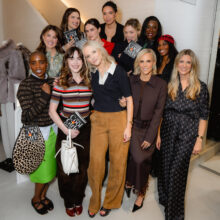 Culture
1.15.26
Cool Girls Who Got Fired
Culture
1.15.26
Cool Girls Who Got Fired
-
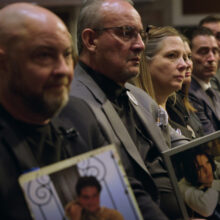 Culture
4.21.25
Word of Mouth: ‘Can’t Look Away’
Culture
4.21.25
Word of Mouth: ‘Can’t Look Away’
-
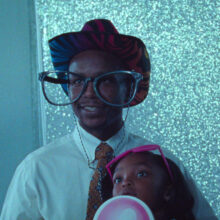 Culture
10.24.24
Word of Mouth: ‘Daughters’ on Netflix
Culture
10.24.24
Word of Mouth: ‘Daughters’ on Netflix
-
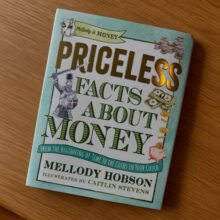 Culture
10.24.24
Financial Literacy for Kids? It’s Priceless.
Culture
10.24.24
Financial Literacy for Kids? It’s Priceless.
-
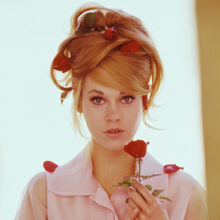 Culture
11.22.23
What’s Your Sign? Sagittarius
Culture
11.22.23
What’s Your Sign? Sagittarius
